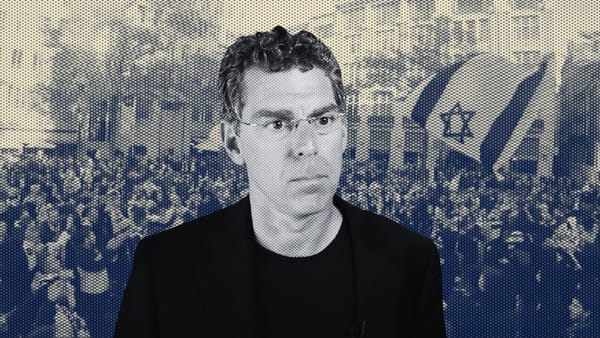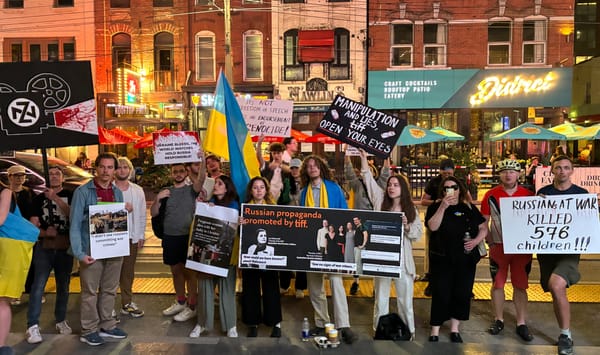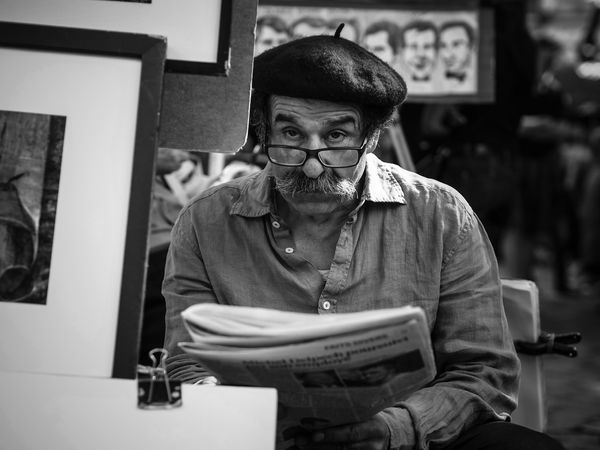Writing was my hobby, until it became my job. That’s no doubt true for a lot of writers. But when you spend an undetermined number of hours a day trying to write things because you need to in order to make money, it’s suddenly a lot harder to do it in your spare time, too.
As a teen, I religiously completed NaNoWriMo, where the aim is to write a 50,000-word story in 30 days. I buckled down every November from when I was 13 to 18, and wrote six 50,000-word manuscripts alongside various other fiction projects that rarely got past 10,000 words. Then I became a news editor at the college paper, alongside writing academic essays, and copywriting for various poorly-paid agencies. So, I put fiction writing on pause — and never got it back.
When hobbies turn into side-hustles or full-time jobs, the joy of creating can be harder to come by. As late stage capitalism develops, more people are forced into the same situation: seeing their passions as a skill set that must be monetized for survival. As such, huge numbers of people lose their leisure time in the name of generating more capital.
What do we lose when swathes of the population, en masse, get robbed of their free time? How did capitalism ruin our hobbies — and could socialism fix them?
A Short History Of Hobbies
Creative pursuits exist in part because humans are hardwired to create. Many creative hobbies, such as singing, dancing, painting and storytelling, are things humans have been doing since before written records. Kids are a great example of this: they’ll draw simply because they want to, without feeling like they have to be “good” at it.
In his influential book Hobbies: Leisure and the Culture of Work in America, academic Steven M. Gelber points to the industrial revolution as a pivotal moment in leisure time. Hobbies had, of course, existed long before the eighteenth or nineteenth century. Hunting in Medieval Europe was part-pastime, part-court etiquette, and coin collecting dates back to at least Roman times.
Yet Gelber writes that as the “fluidity of pre-industrial time gave way to discrete blocks of commodified time that could be sold for work or withheld for leisure,” moral powers of the era were concerned that time away from the job could be spent in “delinquent activity and deviant ideas.”
As a result, hobbies were promoted as a way to ensure idle workers weren’t getting into trouble, and formalized as things to be kept track of and competitively analyzed. As unions successfully struggled to fight for shorter work hours and weekends, this only became more important due to people being able to spend a greater amount of free time on their hobbies
Gelber calls hobbies “productive leisure,” because they generate something — be it a list of birds you’ve seen or a scarf you’ve knitted. Even outside of the workplace, capitalist culture was replicated in the status of hobbies. Gelber writes that they “provided a respite from the normal demands of work” while simultaneously conveying the importance of a strong “work ethic.” If you dedicated yourself to a hobby, you could get really good at it. So proficiency, or expertise, became the unstated aim.
While hobbies and pastimes contain a huge variety of activities, most of them are things with measurable ways to be ‘good.’ Birders compete to see more birds; Magic: The Gathering players compete to build good decks or find valuable cards; yoga enthusiasts work on being able to do more poses. The limited exceptions are things like reading or watching TV — and even then, if you want to talk to other people about those things, there’s a kind of social pressure to do more of them, to have seen every big-name show and read every book that makes a splash.
Hobbies under capitalism are competitive because society is designed to have us compete. Feeling accomplishment at finishing a task is human. Feeling compelled to keep doing bigger, better, more complicated things to the point where you stop enjoying your hobby is a result of capitalist culture.
Yet our current era of capitalism has taken this a step further, where doing something even for the sake of improving your skills isn’t enough: those skills should be something that earn you money. Whereas in industrial capitalism, the main value of hobbies was entertainment, the reality now is that their main justifying point is financial. Good hobbies are ones that earn you money — or that you can put on your resumé to demonstrate specific skills to your employer.
The Rise Of Side Hustles
As we move into whatever the fresh hell late-stage capitalism is, workers have stopped gaining wage increases that match costs, or free time, despite ever-increasing productivity, due in part to decreasing unionization rates. Millennials earn around 20 per cent less than baby boomers did, despite being better-educated, and only half earn more than their parents did at the same age. Soaring debt and rocketing house prices mean various hallmarks of middle class stability are often beyond workers, even ones who are educated and have a full-time job.
As such, the lines between work and home have become blurred. And if your job isn’t enough to cover your bills anymore, how can you justify spending whatever block of free time you do have outside work on things that won’t help solve the issue? As a result, young people don’t really have hobbies anymore — they have side hustles.
A 2020 survey from Upwork found that 36 per cent of the American workforce had “engaged in supplemental, temporary, project- or contract-based work at any point in the past 12 months,” with the majority doing it part-time or for supplemental income. Similarly, a 2019 survey found that 29 per cent of workers between the ages of 25 and 65 in British Columbia had multiple jobs.
If you need money and are into, for example, playing video games, it makes sense to see gaming as an untapped source of income, as Twitch and YouTube are both monetizable. Few people can live off video content earnings alone, but the potential for a couple of hundred bucks a month could be enough to make the leap.
Writing for Vox, Marian Bull charts how having “already monetized” all her existing hobbies led her to take up pottery. Pottery isn’t a cheap hobby, but she found joy in its creative freedoms. “My studio cost about $200 a month, plus more for materials. If I could regularly sell a few mugs, I’d break even,” she writes. She made an Instagram, then a website and then started claiming the revenue on her taxes. Then Bull lost her full-time job, and she turned to pottery full-time.
What had gone from a fun leisure activity, giving her the creativity to do whatever she wanted, became governed by the laws of supply and demand. Bull’s creativity is now tied to making things that consumers will buy: “I can no longer call ceramics my hobby, and I doubt I ever will. I assume I will sell my work until people stop buying it.” Ceramics went from a hobby to a job. The same is true for so many other people and their hobbies.
The internet is a core part of how (and why) people are monetizing their hobbies. Etsy is designed for small makers to sell their goods, but doing so effectively means understanding its algorithm. Instagram, Bull notes, “has turned marketing into a basic skill we’re all expected to have.” Websites help you find customers, but in exchange take a portion of your earnings. Selling what you do means not just doing the task at hand, but also the admin required to make money from it. The time involved in selling a mug for profit, in other words, is more than it takes to make the mug. The act of monetizing a hobby requires a lot of effort, which means less time spent doing what you actually enjoy.
And it can also ruin the once-enjoyable hobby in other ways. Besides growing to dislike your beloved hobby, producing something creative for payment can lead to artistic dissatisfaction. If you make crocheted coasters, you’ll start off selling the coasters you’ve made — until people begin telling you which coasters they like and want you to make more of. Artists may have a wide range of styles, and end up focusing solely on the content or form that is most profitable.
Look at how boring big budget movies are these days, or consider the allegation that indie bands have sold out when they sign major record deals. That’s a macrocosm of what happens in micro: money influences art. Once you produce content because you need to turn a profit, creation for creation’s sake becomes less important.
Creative Hobbies After Capitalism
If the cut-throat nature of market forces is to blame for our need to monetize our deepest interests, then what impact would socialism have on our hobbies and art?
Let’s imagine that late-stage capitalism in its current form ends, and is replaced by something more worker-centric. Though specifics vary, most left-wing kinds of economic policies would result in the average worker spending less time on the job — shorter work hours, fewer work days, more paid vacation and sick leave, universal comprehensive income, and so forth.
Capitalism asserts that your value is tied to your economic output; socialism treats people as inherently valuable. This means that ultimately, the premise of hobbies in capitalism is a lie. It’s nearly impossible to do anything purely for the love of doing it, as there will always be financial value calculations that affect your choices.
We don’t have to imagine too hard what free time in socialism will look like, because there are already examples. In 1961, Herbert Zerle wrote that leisure time in socialist East Germany “offers the possibility not only of relaxation and entertainment, but also of personal self-realization through diverse cultural and scientific contacts.” Art, academics and culture are created by all and they are also available to all, not just a moneyed elite. Zerle claims that engaging in creative hobbies is encouraged, because it helps with self-fulfillment, writing, “Leisure time serves, in addition to physically and psychologically necessary relaxation, above all the speedy victory of the cultural revolution, the development of a highly educated, cultured person.”
Danny Katch writes in Jacobin that the early years after the Bolshevik Revolution saw “an explosion of art and culture,” which were opened “to the masses of workers and peasants,” who in turn had more free time to spend doing what they were interested in. Making art more accessible means more people can engage in what has previously been elitist high culture. It also breaks down the barriers of who can do the creating. Or, to put it another way: If you could access art for free and have more leisure time, would you feel more creative?
Leisure studies writer Stanley Parker described free time under socialism as things done as “pleasurable ends in themselves” and argued that “this is the true spirit of leisure: activity pursued in its own right, the most essentially human activity.”
If everyone had the time and space to create, what new movements would we see? How much more would filmmaking flourish if the industry wasn’t dominated by huge studios? How many more people would paint, dance or write — not to be good at it, but for the sheer joy of creation? Hobbies wouldn’t have the threat of monetization, nor the guilt that comes from not working when you feel you should. If we were all financially secure, how beautiful and strange would our creations be?
The last time I participated in NaNoWriMo was 2019. I had been fired from a corporate marketing job that I hated, and a close family member had just died. I had some savings, and was struggling to freelance — so I decided to spend the month just writing. The manuscript I produced was extremely bad. But it felt good to create, even if it was the only period in my adult life when I had that amount of leisure time.
Doing what you love is terrific. Market forces warping what that looks like is terrible. Whenever we do something to make money, it becomes work — and it will sometimes suck. More people are relying on their passion projects for money, so fewer are getting to earnestly enjoy what they do.
My latest hobby is making macrame plant hangers. I’m not particularly good at it. My knots are wonky, the ropes often twist and they never quite hang level. Creating something imperfect, that I literally could not sell if I wanted, is refreshing. It means I can’t be tempted to find a way to claim back the costs of materials. I can be more mindful of the process, and care less about the end product.
Under socialism, we will all have more time to spend on hobbies. I can’t wait to see the lumpy cardigans, the glitchy games, the ugly cakes and warped woodwork — and the joy of having made them.







